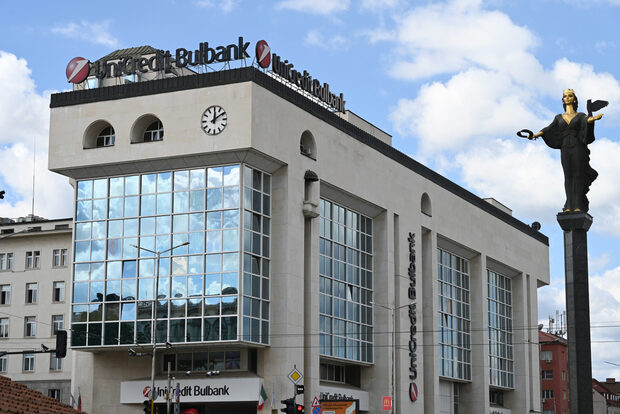Two weeks after the Ministry of Finance said that Bulgaria had delivered on all the commitments it had undertaken in its bid to enter the Exchange Rate Mechanism (ERM II) and the EU's Banking Union in preparation for adopting the euro, one of the supposedly completed tasks resurfaced.
The problem stems from the refusal of Bulgaria's largest automobile insurer, Lev Ins, to pay compensation under the Green Card international certificate for road accidents abroad. The issue has been public knowledge for almost two years and has even led to a shameful monitoring procedure for Bulgaria. Yet it remains unresolved. Now, it threatens not only the stability of the banking sector and the interests of companies and people travelling to non-EU countries but also Sofia's progress towards the Eurozone.
Europe's Green Card certificate has no connection to the residence document required under US law for immigrants to America. The certificate ensures that a car driver who has a motor third party liability (MTPL) insurance in his home country will also be covered when driving abroad.
According to an announcement by Bulgaria's Financial Supervision Commission (FSC), a meeting was held in Sofia in July with the chairman of the European Insurance and Occupational Pensions Authority (EIOPA) Gabriel Bernardino to discuss urgent measures for the non-banking sector. However, this reasoning seems unlikely. The FSC has said that all commitments on the regulator's part have been fulfilled. Moreover, EIOPA has a say in the decision of whether to accept Bulgaria into ERM II. The authority gives its opinion to the European Commission before the approval of a candidate country for membership of ERM II.
The Lev Ins case
According to sources of Capital, the real reason for the July meeting in Sofia was a sharply-worded letter from the European regulator addressing the Green Card issue. The problem is that Lev Ins has refused to pay compensation it owes under the international certificate for damages abroad, citing partner fraud. The company did not respond to written questions from Capital seeking a comment.
Following the publishing of the information about the meeting by Capital, Lev Ins employees staged a protest rally in front of the editorial building. Lev Ins' representatives said that they were not liable for the problem with the Green Card, but rather their correspondents abroad who were allegedly syphoning funds from the company, thereby draining national capital and threatening Bulgaria's financial system. According to Lev Ins, the Bulgarian branch of Green Card has confirmed their claims after doing an audit report, but this document has not been shown and has not been confirmed by Green Card.
The rules of the Green Card system require that even in case of disputes the insurers must first pay the compensation they owe and only then defend their corporate interests. However, Lev Ins claims it should not have to pay in the event of fraud. According to data from the National Bureau of Bulgarian Motor Insurers, there were 5,489 claims for a total amount of 18.8 million euro submitted to Lev Ins in 2018, part of which were paid by the Bulgarian bureau of Green Card. By mid-2019, Lev Ins owed the national bureau 7.1 million euro.
Months earlier, the pending damages led to a monitoring procedure by the international Green Card system for the Bulgarian market, which included a mandatory requirement for the signing of a general reinsurance contract by 1 September 1. Otherwise, the country risks further penalties and even possible exclusion from the Green Card system.
Sources in the insurance sector have said that the deadline for the reinsurance contract won't be met because of disagreements among the companies over how they should distribute the costs for the contract, which is supposed to be around 13 million euro. Currently, it seems that the likely approach is based on underwriting risk, which means that Lev Ins and two more companies will have to pay about 80% of the amount.
The price of the contract depends on who joins it. Initially, the plan was for companies to join gradually as their individual reinsurance contracts expire. However, opinions have shifted and now it is likely that joining the contract will be concurrent, which will have a negative effect on the price.
A new threat
According to experts, Bulgaria risks getting dropped from the Green Card system if it does not meet the deadline, which would mean that drivers may face problems travelling abroad this fall, especially in non-EU countries like Serbia, North Macedonia and Turkey. However, a more likely penalty is to impose a fine on the market for every month of delay. The exclusion of an EU country would be a precedent and there is concern at the headquarters of the Green Card Council that the measure could cause damages. Moreover, the financial burden of a fine is much easier to distribute among companies.
Time for government intervention
The EIOPA meeting in Sofia is a signal that the European regulator is asking the FSC to act decisively to remedy the problem. So far, the regulator has avoided taking measures. The reason is that there are no problematic indicators of solvency, liquidity or insufficient technical reserves in Lev Ins. Satisfied with that, the FSC has left the local Green Card office to deal with the issue on its own. However, the office did not report success even after a change in its management. Unofficially, the reasoning behind the inactivity is that there is no political will and assessment of what is more valuable - the interests of Alexey Petrov, the man who stands behind Lev Ins, or the benefits of Bulgaria integrating more closely into the European community.
Two weeks after the Ministry of Finance said that Bulgaria had delivered on all the commitments it had undertaken in its bid to enter the Exchange Rate Mechanism (ERM II) and the EU's Banking Union in preparation for adopting the euro, one of the supposedly completed tasks resurfaced.
The problem stems from the refusal of Bulgaria's largest automobile insurer, Lev Ins, to pay compensation under the Green Card international certificate for road accidents abroad. The issue has been public knowledge for almost two years and has even led to a shameful monitoring procedure for Bulgaria. Yet it remains unresolved. Now, it threatens not only the stability of the banking sector and the interests of companies and people travelling to non-EU countries but also Sofia's progress towards the Eurozone.











